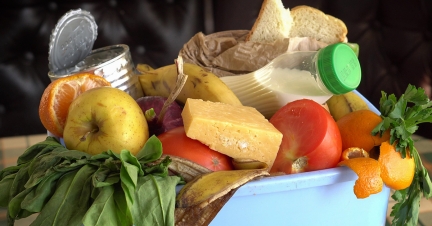
Organics make up about one third of the waste stream in Minnesota. In line with the waste hierarchy, the MPCA supports organics management that favors preventing wasted food, food donation, and food-to-animals before composting. However, all four methods of diverting organics conserve landfill space and reduces methane emissions from landfills. Increasing organics collection and processing infrastructure is necessary to meet statewide recycling goals.
Though preventing wasted food is preferred, composting organic waste and compostable products creates a valuable product that improves soil fertility, conserves water, and reduces erosion. However, there are challenges to increasing large-scale commercial composting in Minnesota.
Minnesota currently has nine large-scale compost sites permitted to accept food waste (source-separated organics facilities, or SSOM facilities) and more than 115 sites that collect yard waste only. Contact your county with questions about composting resources in your area.
Wasted food and organics
The majority of the food Minnesotans throw out — about 62% — could have been eaten or donated, according to a 2019-2020 study. Food and compostable paper and packaging make up a quarter of everything households and businesses throw in the trash. Within that category:
- 40% is food that could have been eaten at some point before it spoiled
- 6% is unopened and unexpired food that could go to people in need
The MPCA’s goal is to cut the amount of food wasted in Minnesota in half by 2030, using 2013 numbers as a starting point. Learn more:
Another study shows that organics make up about one third of the waste stream in Minnesota. Increasing organics collection and processing infrastructure is necessary to meet statewide recycling goals.
PFAS at compost sites
PFAS is a concern in all forms of waste, compost sites included. PFAS has been found in contact water at commercial compost sites where organic materials like food waste, compostable food packaging, and yard waste are sent. A source has yet to be determined and we continue to investigate possible sources. We were surprised by the results of the studies and commissioned further research to better understand PFAS issues associated with compost sites. Visit our PFAS studies and reports page to learn more.